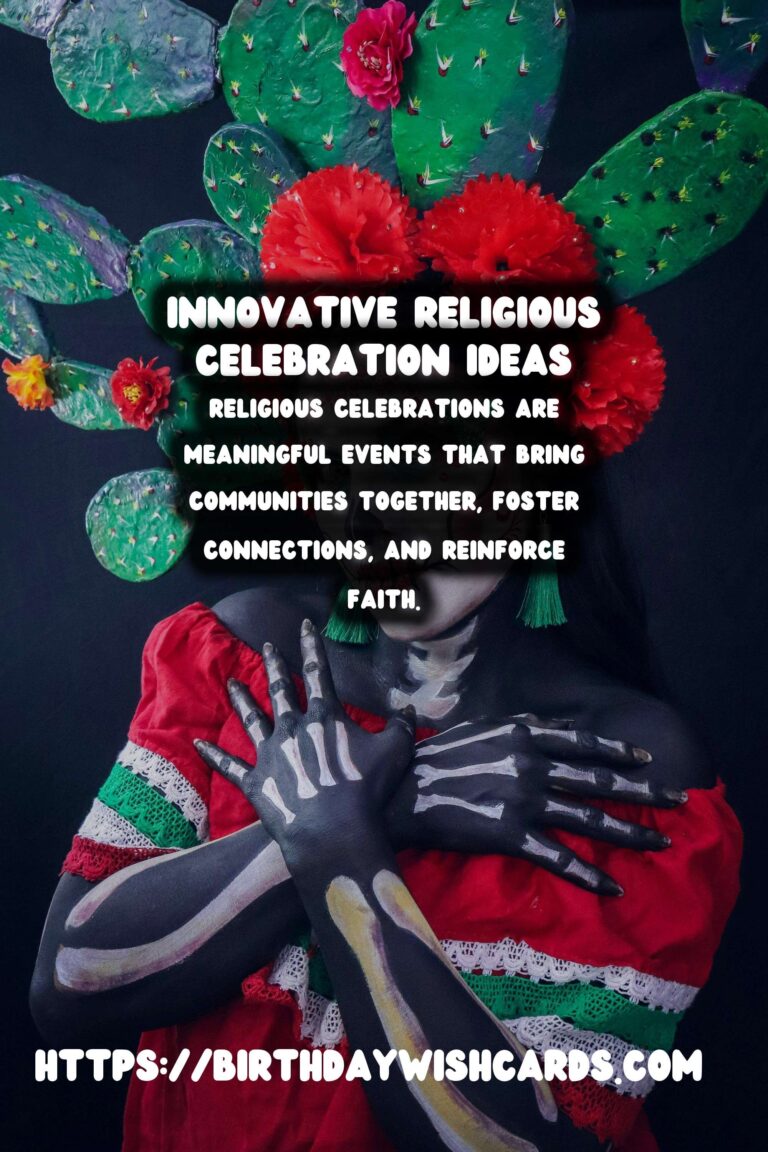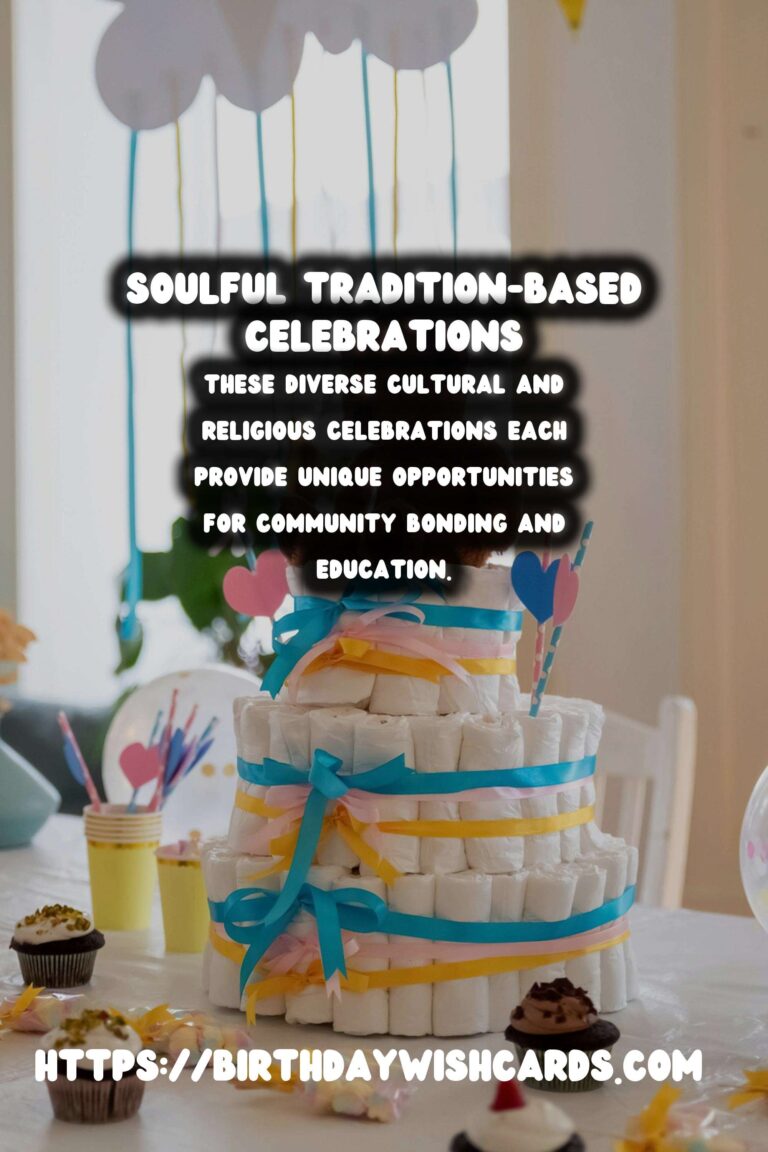Top 20 Celebration Etiquette Around the World That Are Trendy
Top 20 Celebration Etiquette Around the World That Are Trendy
Celebrations are a vital part of human culture, and with globalization, many traditions are shared and adapted across borders. Understanding celebration etiquette from different cultures can enhance experiences and promote respect during these occasions. Here’s a look at the top 20 trendy celebration etiquettes from around the world.
1. Japan: The Art of Bowing
In Japan, bowing is a crucial part of greeting and showing respect, especially during celebrations. A slight bow shows gratitude, while a deeper bow expresses more respect and humility. When attending a Japanese celebration, mastering the appropriate bow is essential.
2. India: The Importance of Inviting the Gods
In Indian celebrations, such as Diwali, it is customary to invite deities into the home. This often involves setting up altars with offerings of food and flowers. Respect for tradition is paramount, and guests are expected to participate in the rituals.
3. Brazil: The Color of Clothing
During Carnival in Brazil, wearing certain colors can signify different intentions or blessings. For instance, white is worn to symbolize peace and good fortune. Understanding these colors can help attendees blend in and truly enjoy the festive atmosphere.
4. Mexico: Celebrating the Dead
During Dia de los Muertos, or Day of the Dead, the celebration of life and remembrance takes center stage. Etiquette includes creating altars and sharing stories of those who have passed. Attendees should approach these rituals with respect and a sense of honor.
5. China: Gift Giving Etiquette
In China, it is customary to bring gifts when invited to a celebration. However, gifts should never be wrapped in white or black paper, as these colors are associated with funerals. Understanding this is key to avoiding cultural faux pas.
6. Italy: Toasting at Celebrations
Italians take toasting very seriously. When raising a glass, it is customary to maintain eye contact with all participants to signify good intentions. Additionally, never toast using an empty glass, as it’s seen as bad luck.
7. Middle East: Sharing Meals
In many Middle Eastern cultures, sharing a meal is considered an act of love and respect. When attending a celebration, it’s essential to try a bit of everything offered, even if it’s outside your comfort zone. It’s more than just food; it’s about community and hospitality.
8. Greece: Breaking Plates
At Greek celebrations, breaking plates is a symbolic gesture of joy and abundance. This practice is often encouraged at weddings or significant celebrations to ward off bad luck. Guests should participate and celebrate the tradition with enthusiasm.
9. South Korea: Age Matters
In South Korea, age plays a significant role in social etiquette. When participating in celebrations, it is important to acknowledge and respect elders, often addressing them first in conversations or toasts. This respect promotes harmony and illustrates cultural values.
10. Sweden: The Midsummer Feast
During Sweden’s Midsummer celebration, it’s customary to raise a toast before meals to honor the season. Participants often sing and dance around the maypole, with traditions requiring respect for nature and the sun.
11. Russia: Offering Vodka
At Russian celebrations, offering vodka is a must. It’s customary to toast before drinking, and if offered a drink, be sure to accept. Refusing can be seen as an insult, so understanding this practice is pivotal.
12. Thailand: The Water Festival
Songkran, the Thai New Year, is celebrated with water and song. It’s considered a cleansing ritual, and participating respectfully means engaging in playful water fights while respecting personal space and cultural significance.
13. France: Bon Appétit
When dining at a French celebration, saying “Bon Appétit” is essential before starting the meal. Maintaining a lively conversation and enjoying the meal is part of the experience, showing appreciation for the culinary arts.
14. Ethiopia: Eating with Fingers
In Ethiopia, meals often center around injera, a type of flatbread. It is customary to eat with your fingers, a practice that symbolizes community. Guests should use their right hand to take food, which signifies respect.
15. Cuba: Dancing at Events
Cuban celebrations are synonymous with music and dance. It’s considered rude not to join in on the festivities. Guests are encouraged to dance, which fosters unity and joy during any celebration.
16. Scotland: Ceilidh Dancing
At a Scottish celebration, ceilidh dancing is a must. It is a way to foster community and connection. Newcomers should not hesitate to participate, as it’s a welcoming environment that thrives on engagement.
17. Portugal: Gifts of Fish
During festive occasions in Portugal, offering bacalhau (salt cod) as a gift symbolizes prosperity and good luck. Understanding this local custom can enhance your experience at social gatherings.
18. Philippines: The Importance of Family
In the Philippines, family is incredibly important during celebrations. Events such as birthdays and Christmas focus on family gatherings, and guests are expected to greet the eldest family member first to honor the family’s hierarchy.
19. Turkey: Offering Coffee
In Turkish culture, serving coffee is a sign of hospitality. When attending a celebration, it’s common to be offered Turkish coffee, and it’s polite to accept the invitation and enjoy the beverage.
20. Jamaica: Irie Vibes
In Jamaica, celebrations revolve around fostering positive energy or “irie vibes.” Engaging with a cheerful attitude and participating in the music and dance is essential to truly embrace the Jamaican celebration style.
Understanding the diverse etiquette of celebrations worldwide can greatly enrich your experiences and promote cross-cultural harmony. By embracing these customs, you foster respect and appreciation for different traditions, making every celebration more meaningful.
Celebrations are a vital part of human culture, and with globalization, many traditions are shared and adapted across borders.
In many Middle Eastern cultures, sharing a meal is considered an act of love and respect.

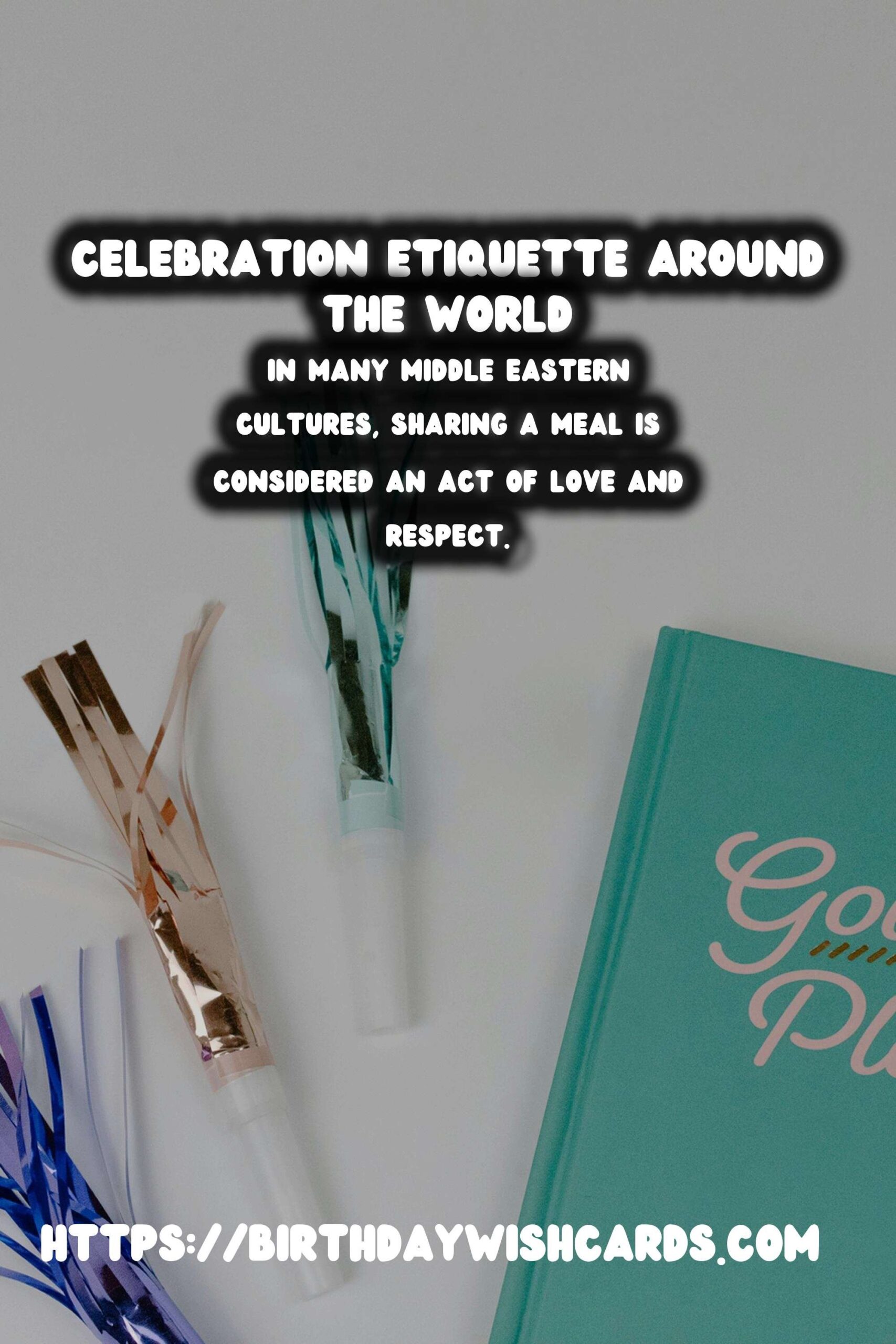



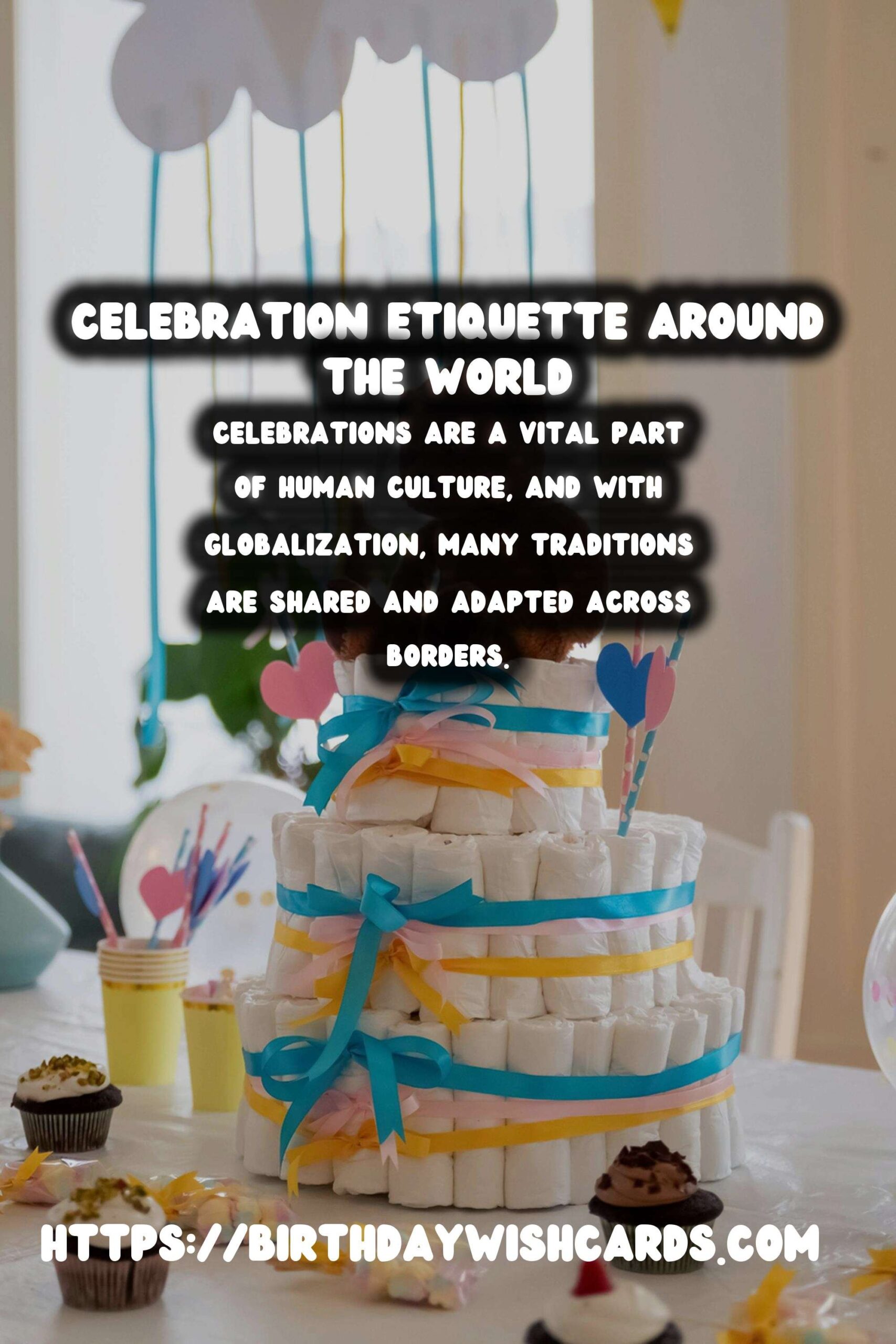


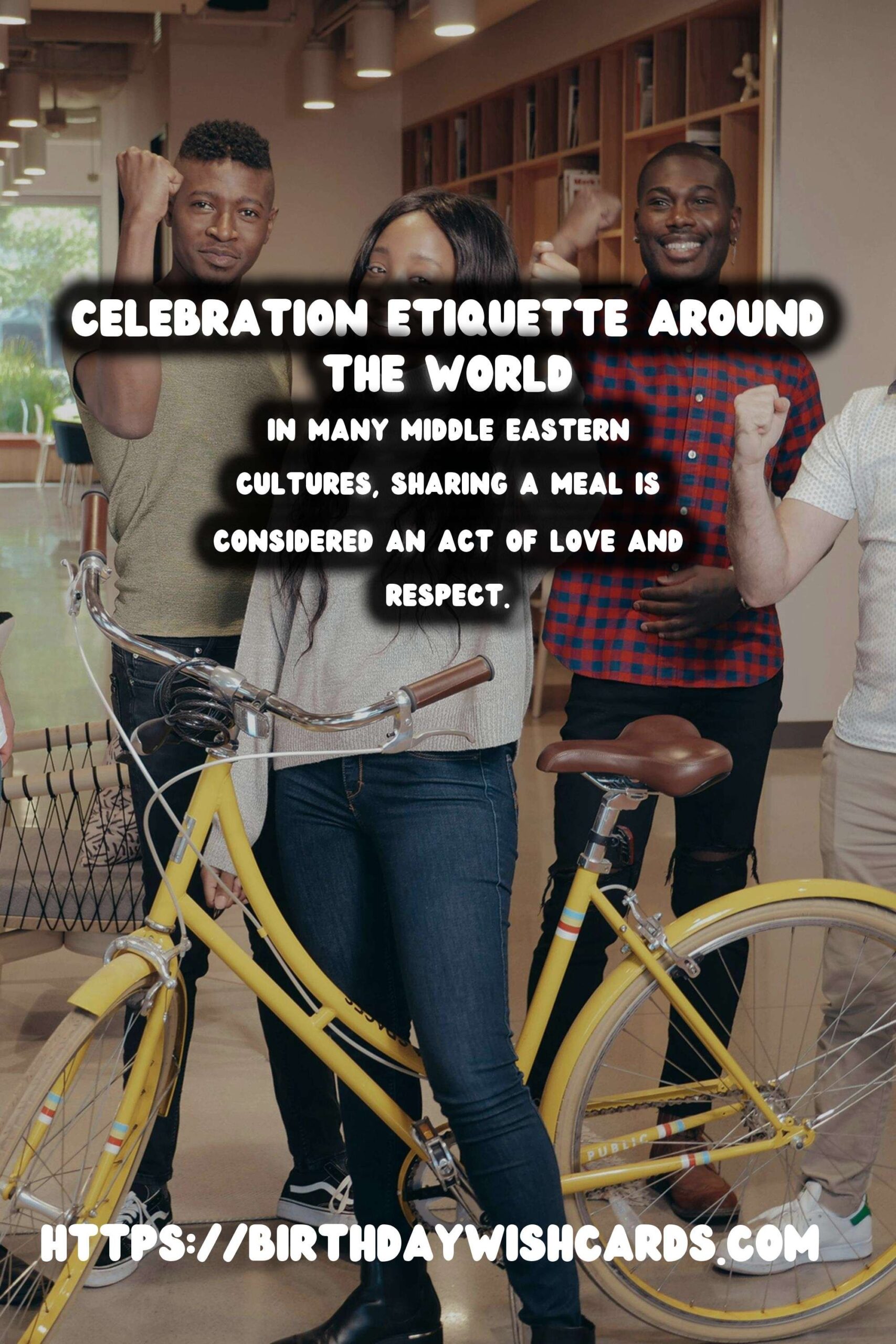
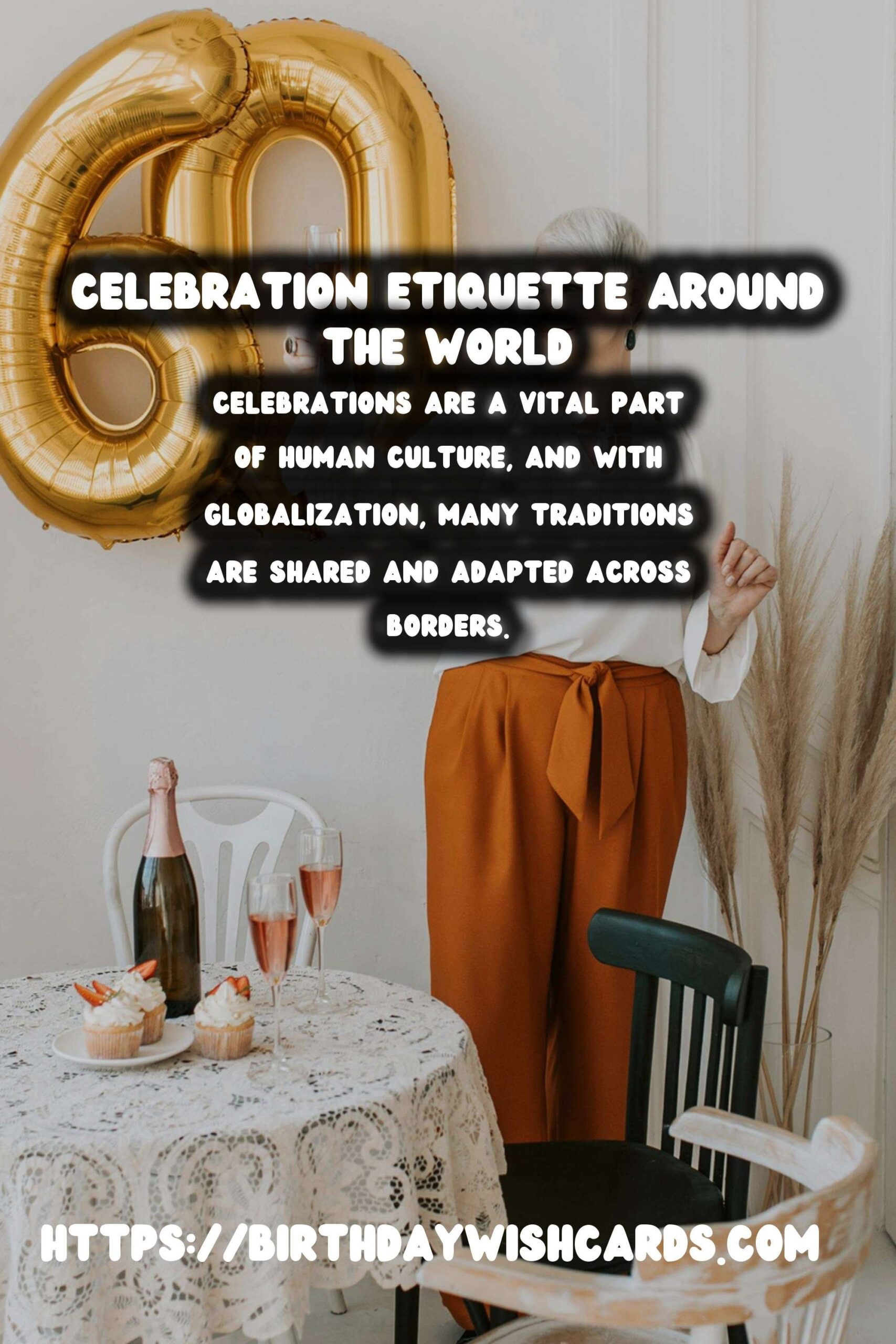
#CelebrationEtiquette #CulturalFestivities

